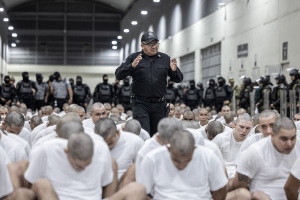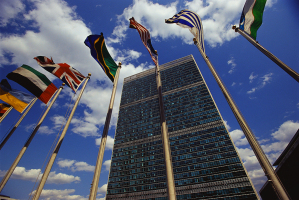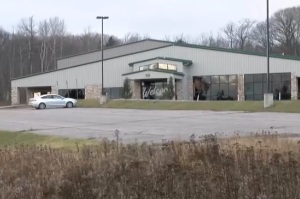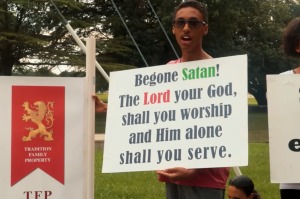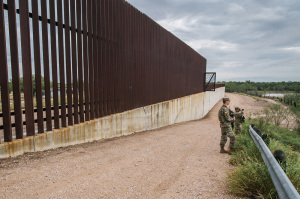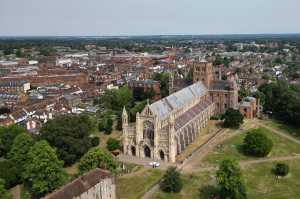Chuck Colson: Recalling a Vision of Unity
A day does not pass when I do not miss my beloved friend, Chuck Colson. I confess that I still have not come to terms with his death. I sometimes find myself reaching for the telephone to consult him on a question or to share a thought or idea that has occurred to me. Then I remember that he is gone from us – now more than a year ago.
It was my privilege to collaborate with Chuck on many projects.The two most important ones were the Manhattan Declaration and the "Doing The Right Thing" video series. Chuck, himself, regarded these initiatives as his "legacy projects." Both were his ideas. He leaves both as gifts to the Christian community, to which he dedicated his life in service, and to the Nation he loved. Both initiatives express and concretely embody a principle that was central to Chuck's understanding of the Christian faith and of his personal vocation as a Christian leader, namely, the harmony of faith and reason.
On Chuck's understanding, Christian conviction is anything but a matter of "blind faith." A sound and mature faith is supported by reason and reasoning, and is always ready "to give a reason for the hope that is within you" (1 Peter 3:15). Such a faith understands that truth has nothing to fear from rigorous thought and inquiry. Reason, far from being a threat to faith, fortifies conviction and upholds the integrity of the teachings of Christ and his Church on matters of faith and morals.
Like his great friend, Father Richard John Neuhaus, with whom he launched the "Evangelicals and Catholics Together" project, Chuck never tired of quoting the words with which Pope John Paul II opened the great encyclical letter, Fides et Ratio: "Faith and reason are like two wings on which the human spirit ascends to contemplation of truth."
As Chuck viewed the matter, the role of philosophy and other fields of inquiry in the arts and sciences is not merely to express what is already known by unaided reason, but to contribute insights which expand the sum total of human knowledge and enable us more richly to understand the truth in its fullness.
Chuck and I met and became friends as a result of his interest in the idea of natural law-the law that, according to Scripture, is "written on the hearts even of the Gentiles who do not have the law of Moses" (Romans 2:14). In his view, some Protestant traditions of Christian faith had for too long neglected this idea or even held it in suspicion. This was despite the fact that revelation itself pointed to it. Reflection on natural law had been sustained mostly in the Catholic tradition.
Chuck reached out to me, a Catholic scholar, in the hope of bringing Catholics and Evangelicals into a valuable dialogue on the subject. Such a dialogue was necessary, he believed, if Christians were to be effective witnesses and workers on the vital moral issues of our age, beginning with the sanctity of human life, the dignity of marriage as the conjugal union of husband and wife, and religious liberty and the rights of conscience.
From personal experience I can say that Chuck brought something to his Catholic friends and collaborators in return. That gift was an understanding of the Bible as a central focus of personal devotion and a living source of spiritual sustenance. Of course, Catholics have always believed that the Bible is the inspired word of God, and, as such, the touchstone and fountain of Christian faith. But Chuck taught me and many other Catholics just how important it is to draw on God's Word for wisdom and guidance in the ordinary course of one's prayer and spiritual life.
It was Chuck's belief in the harmony of faith and reason and in the necessity of attending both to Biblical revelation and natural law, that made him perhaps the greatest force for the unity of Christians of his time. We see this not only in "Evangelicals and Catholics Together," but also in the Manhattan Declaration and "Doing the Right Thing."
No one in our time has worked harder to bring to fruition Christ's prayer that "all may be one" in Him (John 17:21). He was a true disciple of our crucified and risen Lord. He was the Apostle of Christian unity.
















